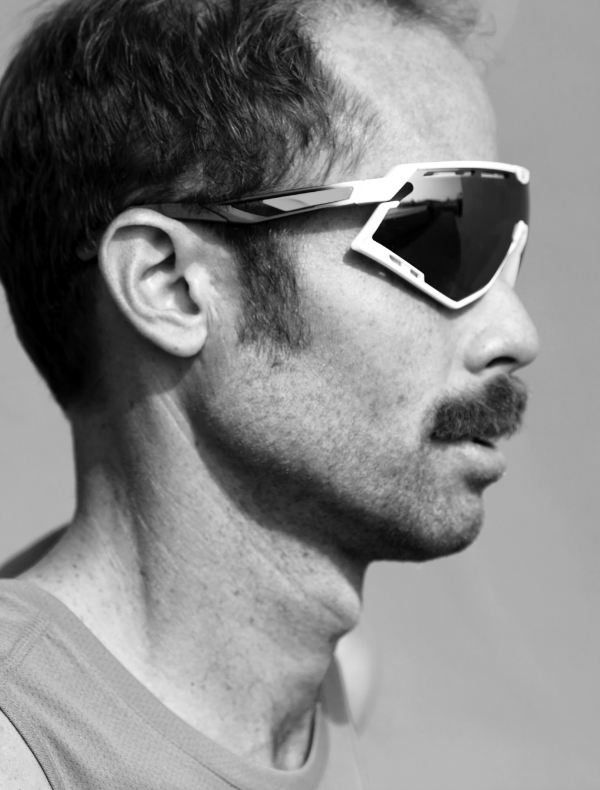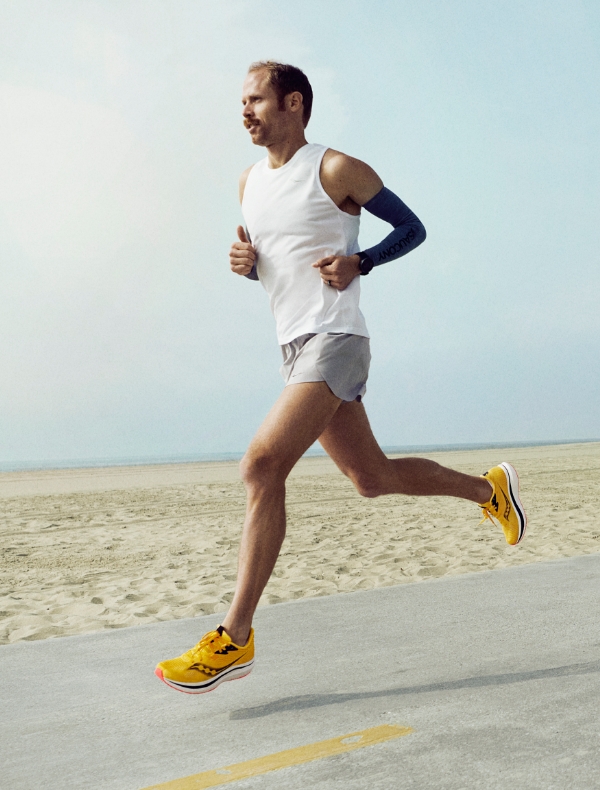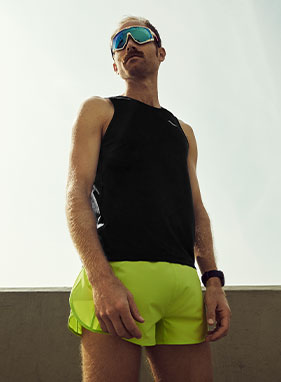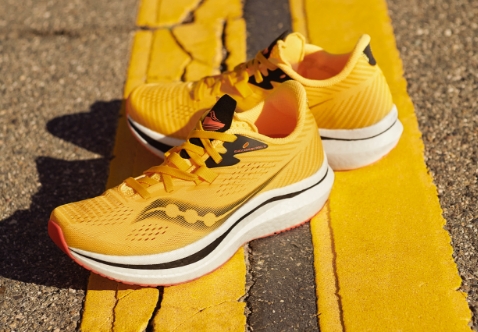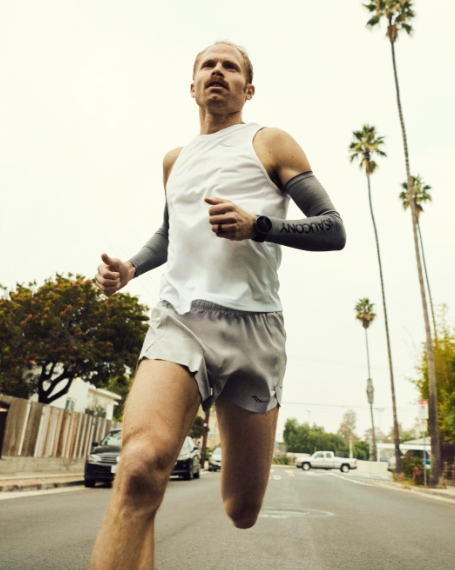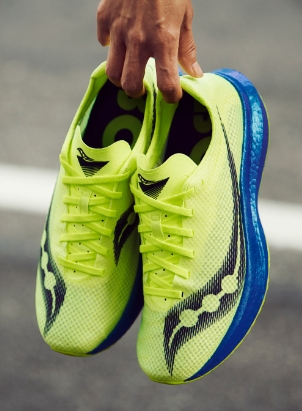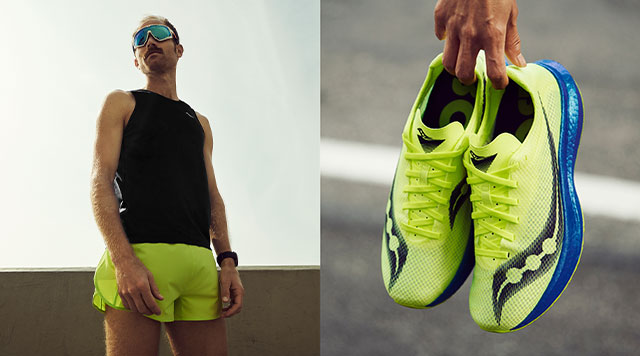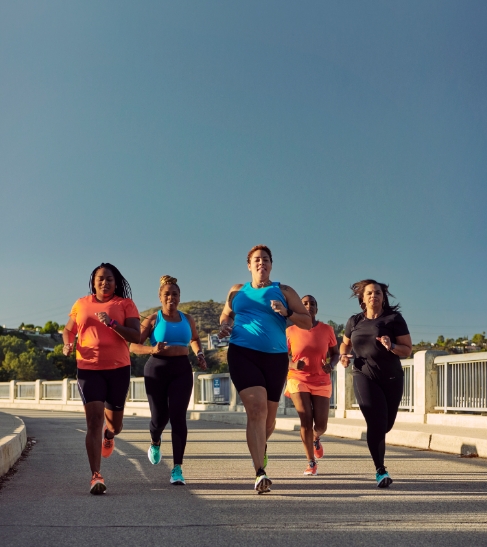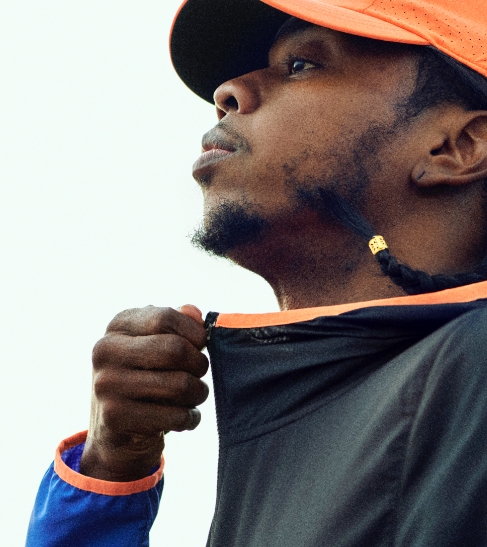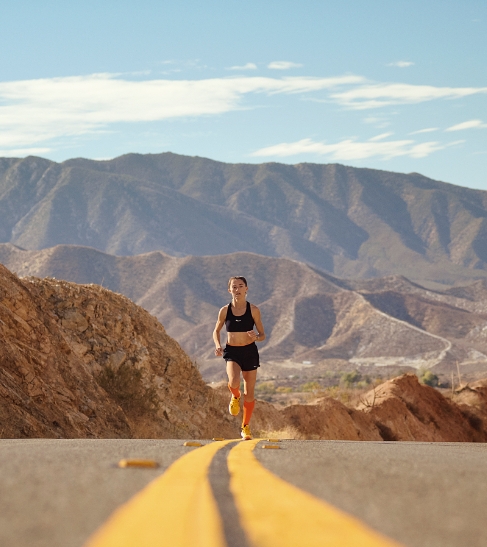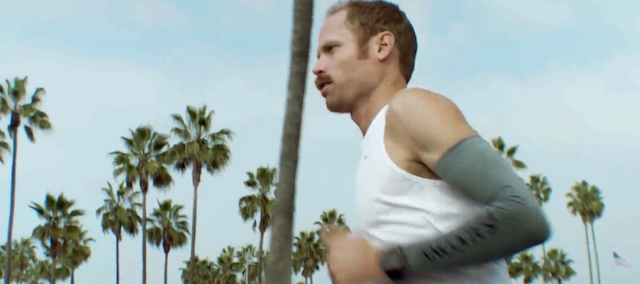
Jared Ward Father. Husband. Professor. Olympic Marathoner.
Focus is the name of the game for this pro runner and busy father of four. He's dialed in on cutting out what he loves the least so he can focus on what matters most. Read on as Jared highlights how running is a vehicle for him to be his best self.
Q: How would you define yourself in terms of your profession? Do you introduce yourself as a professor, a professional runner, or something else? A. We define ourselves to others by what we do. And so if you spend all day doing something (for me, a lot of my day is running), I'm defining who I am to others, whether it's what I believe I am or not. If you want to be true to yourself, then you've got to find ways to really show what you are through the things that you're doing. I'm still a runner because I run 40 hours a week, but it's maybe not how I identify myself at my core. Maybe there's a lesson in our judging other people based on what we see. Maybe it's not what they are at their core.
Q: As a professional runner, but also as a dad, professor, husband, how do you manage your training on top of everything else? A: I love my life. I love everything in my life. I try to cut the stuff that I love the least out of it so that I can fit more of what I love the most. But running is that time where I get it to cut everything and it's just me pushing me. It's not even that the races are the best experiences to me - sometimes it's that magical workout where everything's just clicking. I don't hear anything else - for those minutes where I'm in the zone and it's just my breathing. Life is a balance of "Where can I make myself the happiest with the most return on investment?". Helping other people makes me happy, whether that's helping my kids or people in my community, connecting with other runners. And so that aspect of my life brings me a lot of joy.
Q: You teach statistics at Brigham Young University, and when you were working towards your masters in statistics, you presented your thesis through the lens of running. Can you explain it a bit? A: In my thesis, the point that I wanted to make was that even after your physical peak, you still might be able to improve because you're getting smarter. But I think there is a corollary to life with some crossover there, in that as you experience more, you're able to continue to improve beyond what science would say is an "optimal" because you get a little bit better at knowing yourself individually. I wanted to learn what the better runners were doing when they raced a marathon compared with more average runners. The better runners are starting more relaxed, they are finishing stronger and they're running the terrain of the race. When it's downhill, the better runners run faster and when it's uphill, the better runners run slower compared to their average paces, so they take advantage of terrain. They recognize that the marathon is a long run, so you start a little bit more relaxed and they can finish stronger. Also, as marathon runners age, they get a little bit better at pacing the marathon closer to how the best runners in the world run the marathon, suggesting maybe that we get smarter as we have more experience — giving us the opportunity to continue to improve beyond our physical peak.
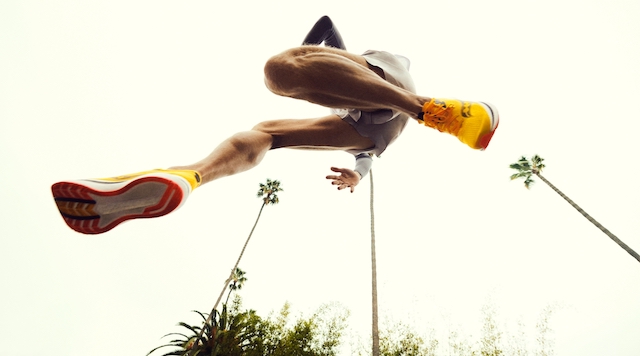
Running is that time where I get to cut everything and it's just me pushing me.
Q: This all seems very similar to how you approach life, and talk about balancing your life. Does your professional background in statistics cross over into how you plan and train in your running career and generally, in life? A: We're all so different, and so, you know, and as I said, my approach to running and maybe life in general has been analytically. "What are people doing that makes them the fastest runner?" "How are people pacing races that get them to the finish line?" "What are the people in the world that are the happiest - who seem the happiest - what are they doing and where do they spend their time?" I'm trying to learn from that but then as I get into life and have my own experiences, I begin to learn at a more acute level. And so, for my first marathon that I was training for, I'd never run a marathon but I was looking at pacing profiles of other people who run marathons. Then after ten marathons of experience, I know my body and I know how I respond. Now I'm shifting a little bit away from the average, and I'm shifting more towards Jared, and I would say I do that in life as well. I think that's like a beautiful melding of information, of life. And so I would say that I have sort of that semblance in my life and in running.
Q: You are extremely faith based, but then you also are so rooted in math, science, statistics. Do the two ever cross over for you or contradict each other? A: I see these as more of the same thing as opposed to a juggling of two or three different things. I've tried to be true to what my heart feels like I should do, what makes me excited and where I find truth. And if my heart told me something different, then I would go follow that. So I don't so much look at it like my faith pulls me this way and the data pulls me this way. It's more that my heart pulls me to what I believe is true. And that's, you know, and that's the thing I can rely on. That's where I feel happiness. That's where I feel fulfillment. That's where I feel joy. And so, I guess I would say that I'm following joy and I'm following truth. And as I'm able to analyze data, I learn things. But as I'm able to follow what happens in my heart, I'm led to what I feel like I should do. I guess that's faith. But faith has almost proven - like data - time and time again to have brought me to places that will make me happy.
SHOP JARED'S FAVORITES
High performance for a high performer. Whether training or racing, Jared's kit is stocked with fast fabrics and speedy shoes.
I like the freedom that running gives my mind.
Q: Do you ever think about who "Jared" would be without running in his life? A: Running is something for me that checks a lot of boxes. It's a way for me to push myself in this way that I want to. I want to put myself on that line and focus on what I'm doing and see how long I can push my body and my mind. And it's an opportunity for me to connect with a community. But is running who I am? I don't know. If I weren't a runner, I like to think that I could have found something else to excel at similarly. It's a means to an end, but running isn't the end in itself. It's such a blessing that it's a livelihood and that I get to make money doing this and support my family doing this. But to me, it's not the end in itself. It's just a means to satisfying all of that. It's something that I do that is a really good outlet for a lot of things that I am.
Q: What does running (and the concept of being called a "runner") mean to you, your identity, how you define and see yourself? A: I'm running because I would say I run as a means to an end. Running is not the end in itself. So in that way, this runner is not a runner. This runner is a dad and a researcher and a prayer. I'm pushing my body and my mind to its limit and seeing what I can do to affect myself and the world around me by being my best self. And running is the vehicle for me to do that. So in that sense, I'm not a runner. And maybe everybody could benefit from a little bit of introspection in a similar way. To ask, "hey, what am I and why am I?" And as we start thinking about what we are and why we are, then that really unlocks some powerful motivation to go reach our potential. It's important to not get too entrenched in this idea that we are what we do - because that doesn't last. I'm not going to be an Olympic level marathon runner forever. And we're all not going to be what we are right now forever. But maybe there are some aspects of what we are or what we can become that do last forever and have an impact forever.
Q: California is such an important place for you in your running career - what does it mean to you to shoot a campaign there? A: I like the freedom that running gives my mind, and running along the beach to me kind of embodies some of that freedom. I ran the L.A. Marathon in 2015, and that was my breakthrough marathon. That was my third marathon and it was the U.S. Championships and I won the US championships, had an international field too, so I finished third internationally, but I was the top American. So that made me the U.S. champion for the 2015 for 2015 in the marathon. And I remember coming down towards Santa Monica Pier, flying like I felt good at the end of that marathon. My whole family was there cheering, and that was an exciting breakthrough race in 2015 that set up for the Olympic trial in 2016 that was also in Los Angeles. It hit me that this marathon was the marathon for everyone that had invested in me as a marathoner and that the way that I could give back and say thank you to coach in high school and parents and siblings and teammates and physical therapists, the way that I could say thank you is my best. And I've taken that motivation with me since then. Being in that hardest race of my life gave me the opportunity to learn something that I wouldn't have learned. So L.A. is special because I learned things in L.A., I learned things that shaped who I am. There's a lot in Los Angeles that pulls at my heartstrings. ■




